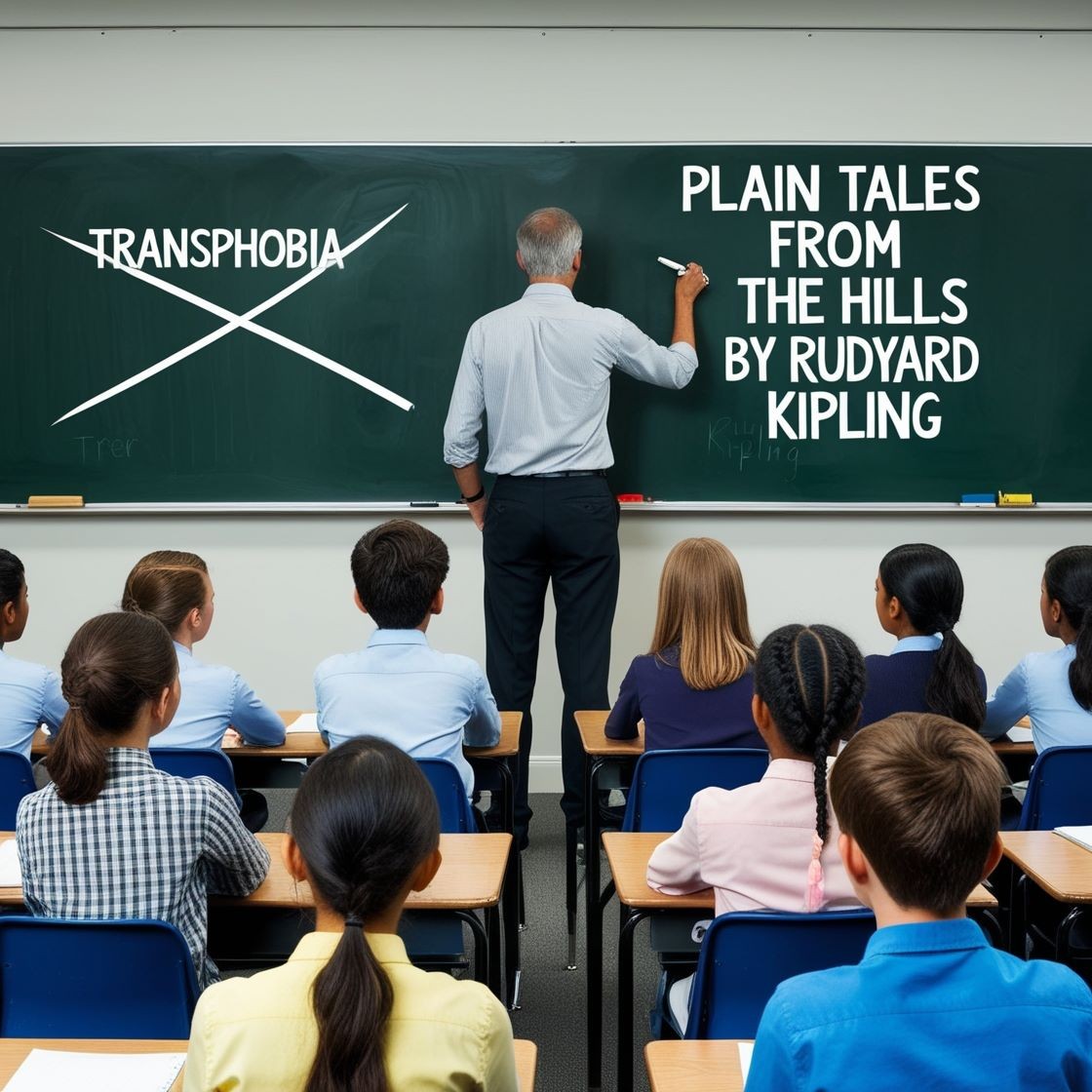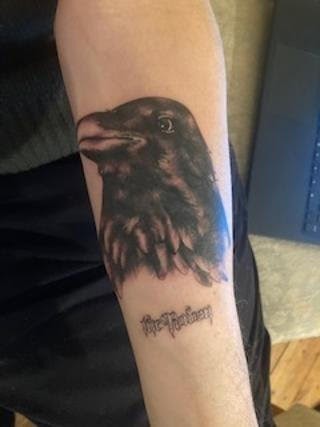
'Of all tyrannies, a tyranny exercised for the good of its victims may be the most oppressive. It may be better to live under robber barons than under omnipotent moral busybodies. The robber baron’s cruelty may sometimes sleep, his cupidity may at some point be satiated; but those who torment us for our own good will torment us without end, for they do so with the approval of their own conscience.'
C.S. Lewis
'Censorship is the tool of those who have the need to hide actualities from themselves and from others. Their fear is only their inability to face what is real, and I can’t vent any anger against them. I only feel this appalling sadness. Somewhere, in their upbringing, they were shielded against the total facts of our existence. They were only taught to look one way when many ways exist.'
Charles Bukowski
THE POETRY OF GIN AND TEA
This was published in early 2023, by my long-suffering but open-minded publisher, The Knives, Forks and Spoons Press: The Poetry of Gin and Tea. The title is a reference to the two drinks I see as central to Orwell and his approach to Englishness, freedom and what we've lost. He's the writer above all I look to for inspiration and bleak comfort, in these dark times.
The Poetry of Gin and Tea a semi-fictional account of leaving teaching due to woke horrors, impossible to get reviewed since I’m cancelled in the poetry world (mostly a relief). I’m glad to be out of the claustrophobic absurdity: a place reeking of insincerity and crowded with humourless bores.
The culture war forces writers to parade their progressiveness, but I was always a complete horror to most, seen at best as a ‘right-wing’ contrarian maniac. When they were winning, my stuff could be tolerated - in patronising terms. But they’re now losing. Not vanquished but increasingly seen for the authoritarians and imbeciles they are. People are starting to quietly shift sides. Needless to say, the literary world won’t reflect this.
The book is set in a Wiltshire boutique gin hotel, just after the almighty row on trans-issues which got me drummed out of teaching. Semi-pissed on the absurd range of gins (which in reality taste the same and cost too much) I thought through how we ended up here, with someone who'd been dedicated to a job they loved walking away from ideological absurdities more suited to the DDR.
The narrator is Raven, a reference to The Stranglers tattoo I had done exactly a year to the day after my life-saving cancer surgery:

And the murderous character in Graham Greene's superb thriller A Gun for Hire!
GIN
Its tincture captured by an industrial lightbulb.
A precious liquid perhaps, but easily spilt.
This Wiltshire hotel lounge was so empty, he could try three different
armchairs finding the best light for his gin. Tilting the tenfold distilled Bathtub
Imperial, he thought of Southwold, Norfolk, Hastings. Middle-class redoubts,
where they sipped an imagined past, secretly craved but competitively attacked.
It was better than Victory Gin – and he was no Winston.
But Raven had been erased, which was almost a relief. Partly physical – his
illness – his ego erupting, unworried at being exiled now his body already was.
So the elite enforced their selfish morality, constructed around confected
identities – ripping out your ventricles if you refused to join them. At least in the
past, when fealty was owed to some church, monarch, or government, just a few
set the rules.
Now there were no ‘barriers to entry’, as they say about embarrassing
inserts. Any twerp could get a degree, see suffering, then join the clergy without
a church, grabbing razors to castrate those laughing at demands for evidence
that life is inherited or women don’t have testicles.
Could he use poetry to distil the abnegation, prostration – humiliation – he’d
refused to display?
ABOLITION OF LITERATURE
Woke up with the word Shakespeare on his lips.
From outside came the echoes of crying.
People seeing their history in landfills:
forgotten presents, old Christmas annuals,
and our language – once free as open sea,
northern longships crossing freezing water –
is now bound, gagged, tortured in a cellar.
The simple joy of opening one’s mouth,
swearing with the most ‘offensive’ words known:
‘racist’; ‘sexist’; ‘homophobic’ – just sounds.
The past not past, that’s where I need to go.
I don’t believe laughing at swinging tits
caused sex crimes or discrimination.
Nor did the execrable Mind Your Language
trigger anything but narcolepsy.
I say this, then a recent graduate
razor carves those words on my forehead.
‘Bilbo woke up with the early sun in his eyes’.
Purity not ideology – cold air
cleaner than any thought now.
I can’t believe they gave literature
away to haters, beckoned them in.
Who can bear their doctrines of perfection?
The sun over clouds, dreaming of escape –
absolute beauty of scientific truth.
II.
Landfill culture – psychogeographers –
there’s nothing wrong with hating this country,
except you know hardly any of it.
We’ve been here before, obsession with the
Thames Estuary – Dickens, Conrad, Doyle,
doubtless too canonical, so instead
an exiled German in a terraced house,
missing – if honest – authoritarian
stamping, amazed by England’s sloppiness.
Terrifying vistas over nothing –
sea-swill linking, somehow, to the Baltic –
but slapdash, give a fuck, English freedom.
No intellectuals, no dialectics,
no shining utopian futures – just
net curtains in a seaside greasy spoon.
So this wounded writer would imagine.
Daft really – childhoods still shone, like Christmas,
even better with North Sea waves slamming.
RAVEN ON GEMS
Outside, the January sunset gave a padparadscha display, flaming the sodden
Wiltshire fields.
Sometimes he peered into his gemstones for hours. Raven was an obsessive
collector from childhood. He felt they alone preserved any truth, refusing to
deny reality for some semantic construct. This one on his finger, sparkling
amethyst in candlelight, teal in sunlight; the science was unassailable. As was
its beauty.
Raven had been stopped by an elderly Indian gentleman, shaking with
excitement, asking its identity. The ring appeared bling, initially. Its exuberant
Straits Chinese design combined muscularity with curved elegance. The
startling alexandrite was ‘dark horse’: bitter lemon by day, purple into black at
night. Over three carats and strikingly unincluded, other than from silk creating
its inner glow.
He thought and talked such technicalities whenever he could. And the man
had been interested, they’d even drunk coffee at Costa, on Hatton Garden.
Raven haunted the area, remembering the Indian doing the same; a shop-owner,
he claimed, always at his door or outside, aware if anyone slowed. He’d offered
a card. Raven now found it shoved in his wallet and studied the photo of a star
sapphire: rare Kashmir blue, with the delicate glowing celestial image at its
centre.
The hotel grounds featured a few desultory fishing ponds, lone figures just
visible under umbrellas.
Raven had fictionalised his nightmares:
THE LAKE
He wasn’t sure if any heat came from the lake itself. Lazy bubbles of gas would
surface when trudging its dull circumference. But everything here suggested
heat, accumulated over millennia, exhaled onto his pale face.
He was exiled. The entire culture operated this way: fierce dialogue;
joylessly febrile debate … then a roundup of anyone diverging from a pre-arranged consensus.
The media trumpeted lists of the latest arrests. Progressives
competed in hysterical outrage, damning those taken, demanding the most
painful measures.
The treatments used extreme techniques. The combined academic, political,
artistic worlds had decreed mankind needed returning to an equitable paradise.
People could – by choosing ‘ethnic realignment counselling’ – accept. But
refusal required enforced change, in the east African birthplace of humanity.
High above gaped ragged caves, sheltering man’s earliest wall paintings.
Progressives claimed such daubing foreshadowed figurative art, the discovery
of perspective technique, even the ‘invention of gravity’ – since one showed a
tree falling over.
And the truth? The scrawls were below the level of a three-year-old.
Raven blankly refused to visit. Queues of writers, artists, and academics,
jostled in the heat to pay competitive homage, the desiccated lines stretching
to the lake itself. Their enthusiasm would be closely monitored: a ten-minute
presentation, then a lengthy tick-box document.
Solar noon, meridian sun.
He needed to get back soon, for his session.
These were extraordinarily painful. Every cell had to be swapped, requiring
sixty drip infusions – via a PICC line – lasting five minutes each. Five hours,
every fortnight.
Throughout, images flickered of his donor – an enormous LA drug dealer,
celebrated as a saint by white liberals, after choking to death on a KFC when his
mansion was raided.
The greater suffering was mental.
During the process, he was forced to recount anecdotes and long-buried
memories from his childhood. These were to be made more ‘diverse’, converting
his past into that of a youth raised in Tottenham, Peckham, or Harlesden.
For some reason, Raven could do so whilst remembering – yet concealing –
his annual holidays with a distant uncle in the blue Shropshire hills.
Reciting the obvious poem to himself, various beepers signalled switches in
the chemicals careering through his system. With practice, it could be timed so
that the final line ‘And cannot come again’ coincided with each new toxin, the
five minutes allowed him to slow every syllable, whilst robotically answering
the nagging voices rewriting his life.
It was to be his only victory, but he never once divulged this land of lost content